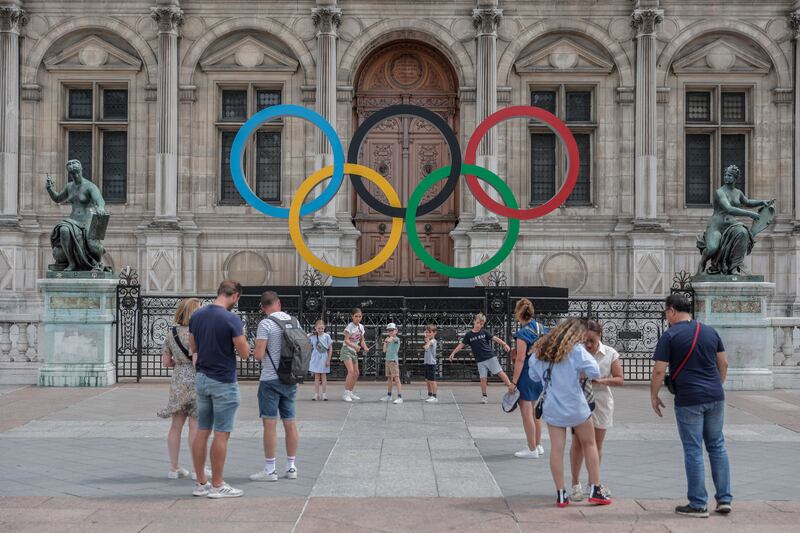The International Olympic Committee is standing by sanctions against the governments of Russia and Belarus but is leaving the door open to athletes from those countries competing in the 2024 Summer Games despite Ukraine’s threat of a boycott.
“The sanctions against the Russian and Belarusian States and Governments are not negotiable,” the Switzerland-based IOC declared in a tweet posted Tuesday aimed at Russian calls for its athletes to be treated no differently than other competitors.
Those sanctions, described as unanimously confirmed by participants at a Dec. 9 Olympic Summit meeting that included leaders of only the Russian, Chinese and U.S. national Olympic committees, were listed in the tweet as:
- No international sports events being organized or supported by an international sports federation or national Olympic committee in Russia or Belarus.
- No flag, anthem, colors or any other identifications whatsoever of these countries being displayed at any sports event or meeting, including the entire venue.
- No Russian and Belarusian government or state officials should be invited to or accredited for any international sports event or meeting.
Not addressed is whether athletes from Russia and its ally Belarus should be allowed to compete in the Paris Olympics. With qualifying events already underway, the IOC said last week a pathway for their participation under “strict conditions” should be explored.
Those conditions would allow Russians and Belarusians to compute as “neutral athletes” who don’t represent their countries, as long as they haven’t actively supported Russia’s nearly yearlong war against Ukraine.
“Governments must not decide which athletes can participate in which competition and which athletes cannot,” the IOC said last week about their possible participation. “No athlete should be prevented from competing just because of their passport.”
The proposal has sparked outrage from both Russia as well as Ukraine, whose president, Volodymyr Zelenskyy, said in a recent video address to Ukrainians that it’s “obvious that any neutral flag of Russian athletes is stained with blood.”
The IOC appeared to be responding to the head of Russia’s national Olympic Committee, Stanislav Pozdnyakov. He welcomed the reversal of the IOC’s previous call to ban Russian and Belarusian competitors but criticized the proposed conditions.
Pozdnyakov questioned whether Russian athletes would be required to condemn what Russia has labeled a “special military operation” in Ukraine. “This conclusion is wrong,” he said according to a translation.
“Russians must participate on the same conditions as athletes from other countries. We do not welcome additional conditions and criteria, especially those that include some kind of political component that is absolutely unacceptable for the Olympic movement,” he said.
Ukraine’s national Olympic committee is set to discuss boycotting the Paris Olympics if Russians and Belarusians are allowed to compete. Poland’s sports minister has announced an international coalition is forming to back Ukraine’s position.
The IOC has spoken out against some statements coming out of Ukraine, according to news reports.
Ukrainian presidential adviser Mykhailo Podolyak accused the IOC of promoting “violence, mass murders, destruction,” and said on Monday a Russian presence at the Games would constitute giving the country “a platform to promote genocide,” Reuters reported.
“The IOC rejects in the strongest possible terms this and other defamatory statements,” the IOC said in a statement cited by Reuters and CNN. “They cannot serve as a basis for any constructive discussion.”


